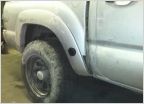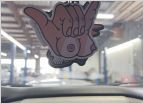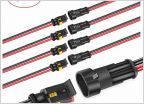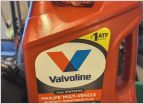-
Welcome to Tacoma World!
You are currently viewing as a guest! To get full-access, you need to register for a FREE account.
As a registered member, you’ll be able to:- Participate in all Tacoma discussion topics
- Communicate privately with other Tacoma owners from around the world
- Post your own photos in our Members Gallery
- Access all special features of the site
Gas Octane
Discussion in '2nd Gen. Tacomas (2005-2015)' started by BreezyTaco, May 9, 2009.
Page 50 of 51
Page 50 of 51


 Side exit exhaust
Side exit exhaust Anyone got any cool Air freshener?
Anyone got any cool Air freshener? Fog Light Wiring Please Help!
Fog Light Wiring Please Help! DYI Transmission Filter and Fluid Change (2015 Tacoma)
DYI Transmission Filter and Fluid Change (2015 Tacoma) Bilstein struts help
Bilstein struts help
